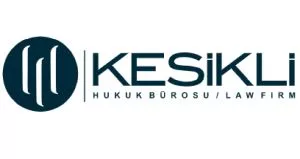- within Government and Public Sector topic(s)
- with readers working within the Oil & Gas and Transport industries
- within Government, Public Sector, Antitrust/Competition Law and Strategy topic(s)
Demand Side Participation Service Procurement Processes\ \ Turkish Electricity Transmission Corporation ("TEİAŞ") initiated the procurement process for the demand side participation service with the first announcement published on 5 March 2025. In this announcement, although the conditions foreseen for the process had been set, the necessary steps were not completed by the applicants, and therefore the implementation was not launched, and the process was cancelled. Within the scope of the Electricity Market Ancillary Services Regulation, the procurement process of the demand side participation service to be provided by TEİAŞ was reorganized with the second announcement published on 1 September 2025, which introduced certain adjustments to the procurement process, clarified certain issues, and revised some conditions.
General Principles
In the first announcement (March 2025), the procurement period covered six critical months, and within this period, a minimum of forty critical days was required; on these critical days, depending on system requirements, supply could be provided within settlement periods in consecutive and/or non-consecutive critical hours for at least one hour and up to a total of four hours. In addition, on each critical day, TEİAŞ could issue load reduction instructions within nine settlement periods for critical hours between 15:00 and 23:59
In the second announcement (September 2025), however, the procurement period was limited to the months of December, January, and February, and a total of twenty critical days were designated for supply. On these critical days, only the hours between 17:00 and 23:59 would be taken into account, with four settlement periods applied.
In the first announcement (March 2025), on a day designated as critical, supply could be provided within settlement periods for at least one hour in consecutive and/or non-consecutive critical hours, up to a total of four hours. In the second announcement (September 2025), however, a new arrangement was introduced whereby supply could be provided under a single instruction for one hour or up to four consecutive hours.
Participation in the Capacity Procurement Process
In both announcements, participants were required to sign an ancillary services agreement with TEİAŞ. In the second announcement (September 2025), the deadline for completing this obligation was set as 14 October 2025. In addition, performance tests had to be completed by 13 November 2025 at the latest, and the TEİAŞ test report confirming dispatchable capacity had to be obtained.
In the second announcement (September 2025), the tendering process was scheduled as follows:
- 14 November 2025: TEİAŞ will publish a reminder announcement that the capacity procurement process for the period 01/12/2025 – 28/02/2026 will begin.
- 17 November 2025: Bids will be submitted by aggregators between 09:00 – 17:00.
- 18 November 2025: At the end of the capacity procurement process, the results will be announced via the Demand Side Participation Module no later than 12:00.
Bid Structure and Limits
In the March announcement, the capacity range that could be offered was set as 50 MW – 400 MW. In the September announcement, this range was revised to 30 MW – 500 MW. The minimum portfolio size was reduced from 62.5 MW to 37.5 MW.
The upper limit of the hourly capacity unit price was raised from 2,000 TL/MW to 5,000 TL/MW.
Activation Procurement Process
- Activation must be ensured at the instruction time and initiated no later than 15 minutes beforehand.
- Load reduction of up to 50 MW per minute may be carried out.
- Within 15 minutes after the end of the instruction, the reduced activation amount must be adjusted by increasing it by up to 50 MW per minute.
- In the event of failure to fulfil these obligations, the condition of the relevant facility must be documented to TEİAŞ.
Conclusion
From the first announcement dated 5 March 2025 to the second announcement dated 1 September 2025, it is observed that the number of critical months and days has been reduced, the number of settlement periods has been decreased, changes have been made to bid limits, and new obligations regarding the activation process have been introduced.
The content of this article is intended to provide a general guide to the subject matter. Specialist advice should be sought about your specific circumstances.


